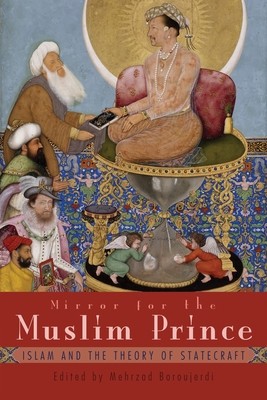
- We will send in 10–14 business days.
- Publisher: Syracuse University Press
- ISBN-10: 0815632894
- ISBN-13: 9780815632894
- Format: 16.4 x 23.5 x 3.5 cm, hardcover
- Language: English
- SAVE -10% with code: EXTRA
Mirror for the Muslim Prince (e-book) (used book) | bookbook.eu
Reviews
Description
In this volume, a group of distinguished scholars reinterpret concepts and canons of Islamic thought in Arab, Persian, South Asian, and Turkish traditions. They demonstrate that there is no unitary "Islamic" position on important issues of statecraft and governance. They recognize that Islam is a discursive site marked by silences, agreements, and animated controversies. Rigorous debates and profound disagreements among Muslim theologians, philosophers, and literati have taken place over such questions as: What is an Islamic state? Was the state ever viewed as an independent political institution in the Islamic tradition of political thought? Is it possible that a religion that places an inordinate emphasis upon the importance of good deeds does not indeed have a vigorous notion of "public interest" or a systematic theory of government? Does Islam provide an edifice, a common idiom, and an ideological mooring for premodern and modern Muslim rulers alike? The nuanced reading of the Islamic traditions provided in this book will help future generations of Muslims contemplate a more humane style of statecraft.
EXTRA 10 % discount with code: EXTRA
The promotion ends in 16d.02:30:40
The discount code is valid when purchasing from 10 €. Discounts do not stack.
- Publisher: Syracuse University Press
- ISBN-10: 0815632894
- ISBN-13: 9780815632894
- Format: 16.4 x 23.5 x 3.5 cm, hardcover
- Language: English English
In this volume, a group of distinguished scholars reinterpret concepts and canons of Islamic thought in Arab, Persian, South Asian, and Turkish traditions. They demonstrate that there is no unitary "Islamic" position on important issues of statecraft and governance. They recognize that Islam is a discursive site marked by silences, agreements, and animated controversies. Rigorous debates and profound disagreements among Muslim theologians, philosophers, and literati have taken place over such questions as: What is an Islamic state? Was the state ever viewed as an independent political institution in the Islamic tradition of political thought? Is it possible that a religion that places an inordinate emphasis upon the importance of good deeds does not indeed have a vigorous notion of "public interest" or a systematic theory of government? Does Islam provide an edifice, a common idiom, and an ideological mooring for premodern and modern Muslim rulers alike? The nuanced reading of the Islamic traditions provided in this book will help future generations of Muslims contemplate a more humane style of statecraft.


Reviews